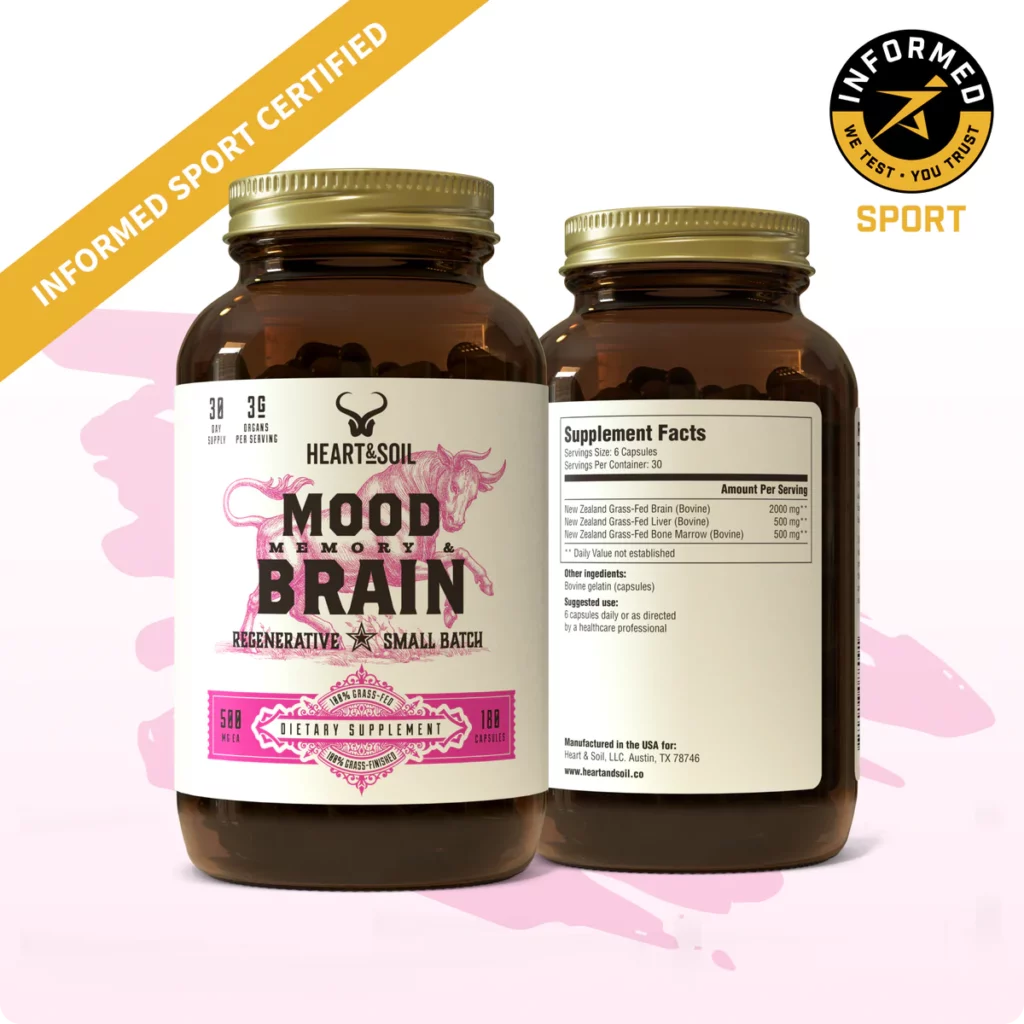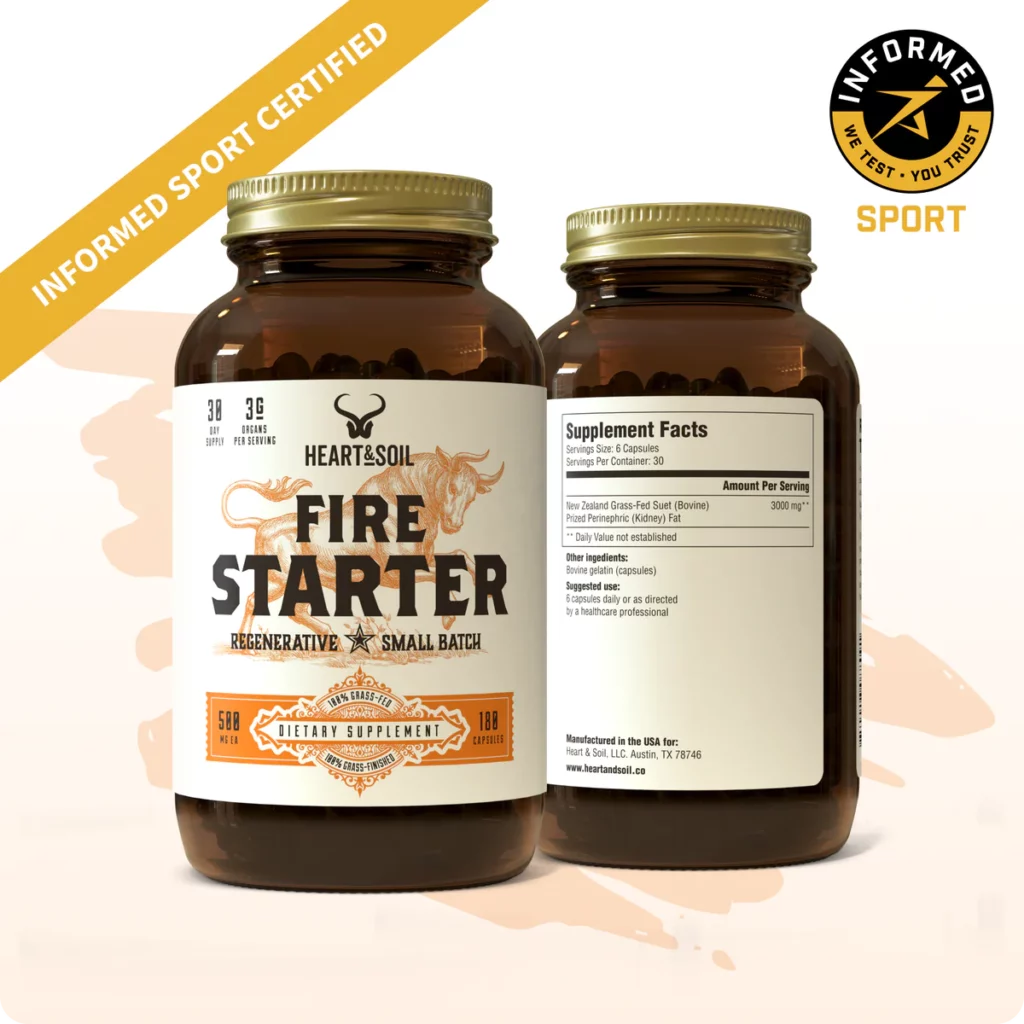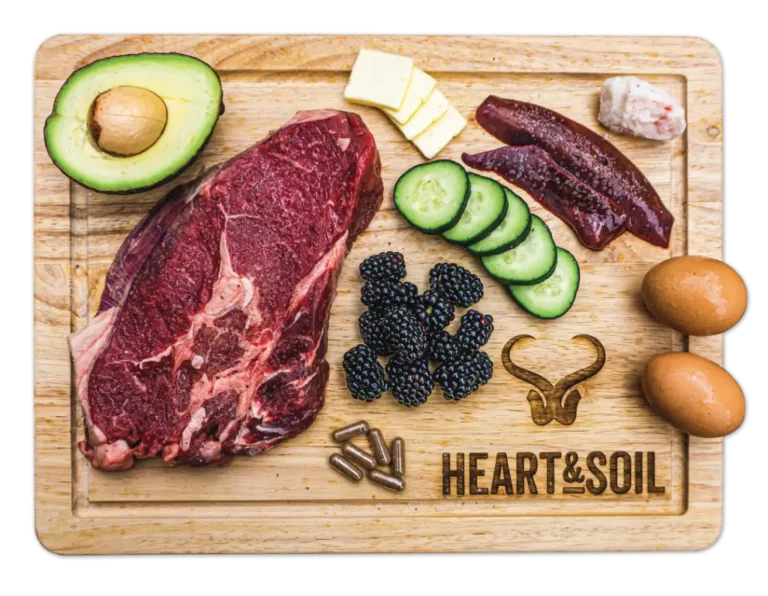NOTE ON MEDICAL ADVICE: This article is not written to provide specific medical advice to treat any medical condition. That conversation needs to happen between you and your medical care team.
What this article covers…
- The safety of H&S supplements during pregnancy
- Supplements we suggest
- Substances you should avoid during pregnancy
- An explanation of the nutrients we suggest for pregnant mothers
- Additional resources
The concern that pregnant women feel over their prenatal nutrition is justified. Because few people are willing to risk experimentation on their developing fetus, the medical community often works from what can only be called an incomplete body of information about what “ideal prenatal nutrition” looks like.
This gap in credible knowledge also leads many women to ask, “What nutrients should I take during pregnancy?” or “What foods or substances should I avoid during pregnancy?” In this article, we’ll address both of these questions, as well as how Heart & Soil supplements can fit into the nutrient regimen of pregnant women.
Are Organ Supplements Safe During Pregnancy?
We believe that taking ownership of your health and the health of your family is one of the most radical and important steps you can take.
Although our recommendations may differ from those of the mainstream medical community — rest assured that our supplements and our recommendations are grounded in science-based evidence and a bias towards animal-based nutrition solutions. We’re inherently skeptical of trends created by industrial food corporations and pharmaceutical companies.
In short, we believe that several Heart and Soil supplements make for excellent additions to an animal-based diet for pregnant women. All our supplements are sourced from cattle that have been grass-fed and finished, ensuring the absolute highest quality and lowest incidence of emergent chemical substances, such as synthetic hormones, antibiotics, or pesticides. They’re raised on regenerative farms in New Zealand, which creates optimal quality of life for the animals and helps fend off climate change (learn more in Dr. Saladino’s article on regenerative agriculture).
What We Suggest: The Prenatal Stack
Mood, Memory & Brain

The first supplement in our prenatal stack is the Mood, Memory & Brain complex. It contains beef brain, including the cortex, hypothalamus, pituitary, pineal gland, as well as bone marrow and liver. As a result, it’s a great source of DHA and EPA Omega-3 fatty acids to support the healthy development of your baby’s brain and nervous system.
The grass-fed liver contained in Mood, Memory & Brain offers a number of important fat-soluble vitamins such as A, D, E, and K2. As an added benefit, this blend of nutrients and peptides is critical for better learning, focus, mood, and mental acuity, making it great for mother and child.
Pure American Liver
Rich in vitamins, minerals, peptides, and enzymes to support your daily energy, strength, and vitality. Pure American Liver is also 100% sourced from grass-fed and pasture-raised cattle on American family farms.
Lifeblood
Lifeblood supplement is packed with vital nutrients and peptides to improve iron stores and oxygen delivery and assist red blood cell formation.
Firestarter

Finally, we suggest the Firestarter complex. Despite what you may have heard, consuming high-quality fat is essential for the healthy function of many bodily systems. This supplement contains rendered beef suet, a form of fat that contains stearic acid, pentadecanoic acid, and many others essential for healthy skin, the immune system, and fetal brain development.
If you’d like to learn how recent scientific research has confirmed the importance of fatty acids and saturated fats, check out this paper published in the journal Nature and this paper from the National Library of Medicine.
Protein, fat, and carbohydrate consumption.
In addition to organs, consuming lots of protein in the form of sustainably raised meat is essential for a healthy pregnancy. You and your baby also need sufficient fat and carbohydrates to achieve the best nutrition possible. The following formulas will help you assess the right macronutrient ratios for your body type. Only you and your medical care team can decide the right ratios for your optimal health and happiness.
- Protein = range of 1-1.2 grams x ideal body weight
- Fat = 0.8-1 grams x ideal body weight
- Carbs = 0.7-1.2 grams x ideal body weight
Example:
Goal body weight = 150lbs
Protein = 150-180 grams
Fat = 120-150 grams
Carbohydrates = 105-180 grams
Regarding your fat and carbohydrate intake, if your total activity level is on the lower end of the spectrum, you should experiment with the lower end of the range, but if you are more active, try the higher end of the range. Finding that sweet spot takes time and experimentation within the recommended range — be gracious with yourself as you explore what works for you.
Better Health Through Elimination
We believe that consuming a strategic blend of nutrients is a major priority for anyone who wants to become pregnant or is pregnant. That said, we also believe that eliminating certain foods or ingredients plays an equally critical role in a healthy pregnancy.
We encourage you to eliminate substances that are immunogenic (i.e., activate your immune system negatively), damaging to your gut, or metabolically compromising.
This includes harmful* seed oils:
- Corn oil
- Safflower oil
- Sunflower oil
- Soybean oil
- Cottonseed oil
- Canola (rapeseed) oil
- Peanut oil
- Grapeseed oil

It’s also best if you avoid toxic plants and plant components such as:
- The leaves, stems, and seeds of virtually all plants
- Seeds, specifically:
- Tree and ground nuts
- Grains
- Legumes (beans, peas, soy, etc.)
- Nightshades (tomatoes, eggplant, etc.)
*Some plant oils such as olive, avocado, and coconut are not derived from the seed at all or are considered safe and healthy for regular consumption. This is a complex topic that includes factors such as the chemical composition of the oil, its shelf stability, and the refining process. Dr. Saladino has a number of podcasts and articles on the subject. In general, animal-based fats are preferable to plant-based fats.
Critical Nutrients for a Healthy Pregnancy
Organs have long been prized by our ancestors as beneficial for general health and specific applications such as fertility, pregnancy, and infant development. Modern science has allowed us to confirm this benefit by assessing the vitamins, minerals, amino acids, and other critical nutrients present in beef organs.
Heart & Soil supplements are a highly stable and bioavailable form of food, which explains why the daily serving size (6 capsules) may seem higher than other supplements you’ve taken. Most prenatal multivitamins contain a synthetic mix of B Vitamin enantiomers (another way to say structure of a molecule) that are significantly less absorbable and may even be problematic for human physiology.
Another example is folate: most prenatal supplements use folic acid rather than methyl folate, which is the bioavailable form. Thankfully, there are many animal-based foods that contain folate in a highly bioavailable form:
- Organs are our top suggestion for a great source of folate! The liver, in particular, has large amounts of folate, with one ounce containing about 18% of the recommended daily allowance (RDA).
- Grass-fed beef also contains around 16% of the RDA per pound.
- You can get about 12% of the RDA from two eggs.
- Roughly half an avocado provides 20% of the RDA.
- Tropical fruits such as passion fruit, papaya, mango, jackfruit, and durian are also notable (and tasty!) sources of folate.

Going Beyond Vitamins and Minerals
Our female ancestors have been eating liver for millions of years, and this organ is universally prized across indigenous groups today. The bioavailable B vitamins found in liver (like folate, riboflavin, B6, etc.) and other organs are also critical for healthy fetal development and difficult to obtain from other foods. Grass-fed liver provides the fat-soluble vitamins A, D, E, and K2, as well as several crucial peptides and growth factors. We believe that consuming 1-2 oz of organs is totally safe and healthy during pregnancy. This will allow for a robust intake of valuable nutrients and still allow you to be below the 10,000 IU Vitamin A threshold broadly recommended by the medical establishment.
It’s also good to consume the peptides, growth factors, and other signaling molecules used by our body’s immune system, which foster growth, repair, and development. Unfortunately, these are not found in the standard “multivitamin” purchased from the store, but they are found in organs.
Brain and bone marrow are some of the best-known sources of DHA and EPA Omega-3 fatty acids, which are absolutely critical to healthy fetal and brain development. Bone marrow contains vital fats and fat-soluble vitamins and has been similarly prized by our ancestors for generations. There is a long history of indigenous groups feeding organs like liver and bone marrow to young women and men hoping to conceive a child.
In addition to the nutrients in Mood, Memory & Brain, Beef Organs contains heart, liver, kidney, spleen, and pancreas with more CoQ10, anserine, taurine, and carnitine along with unique peptides like splenin, tuftsin, and splenopentin, all of which are involved in growth and tissue repair. Firestarter also provides treasured animal fats from rendered suet with valuable fatty acids like stearic acid, pentadecanoic acid, and others essential for healthy skin, immune systems, and fetal brain development.
In summary, we believe that in order to produce the healthiest environment possible for fetal growth, women will want to focus on their own health first and be sure to include lots of nutrient-rich organs and meat in their diet.
Resources to Learn More
The health of children in the womb is such an important topic and one that deserves a more thoughtful approach than what the mainstream medical community has offered. In fact, for many years, western medicine has treated pregnancy as an illness instead of the beautiful life stage that it is.
Here are several resources that may offer helpful information for your pregnancy strategy:
1. Film: Nourished (21 minutes, YouTube)
This short documentary is our effort to inspire men and women that an animal-based diet can offer a more joyful, healthy experience from pre-conception to postpartum. It features interviews with mothers who had pregnancies with and without using animal-based nutrition.
2. Podcast: Fertility, Pre-natal, Pregnancy, Breast Feeding and Peri-menopause with Jaime Seeman, MD (89 minutes, YouTube)
In this episode, Dr. Seeman and Dr. Saladino discuss hormones, nutrition, breastfeeding, and along with many other pregnancy-related topics. Dr. Jaime Seeman is a board-certified obstetrician and gynecologist practicing in Omaha, Nebraska. She is currently in private practice at Mid City OBGYN, offering a full range of services in obstetrics, gynecology, robotic surgery, and primary care. She is a fellow in Integrative Medicine at The University of Arizona School of Medicine. She is also one of the first board-certified ketogenic nutrition specialists in the country.
3. Podcast: Using an Animal-Based Diet to Optimize Fertility and Pregnancy with Lindsey Meehleis (102 minutes, YouTube)
In this episode, Lindsey Meehleis and Dr. Saladino discuss fertility, natural birth control, prenatal care, placental health, labor and delivery, and postpartum recovery. Lindsey Meehleis, LM, CPM, offers wisdom that has been passed down through many different lineages of midwives. In addition to being a midwife and graduating from the only California State accredited midwifery school, Nizhoni Institute of Midwifery, Lindsey is a Doula, Lactation Consultant, Prenatal Yoga Instructor, CPR Instructor, and an Emergency Medical Technician providing Neonatal Resuscitation.
Subscribe to future articles like this: